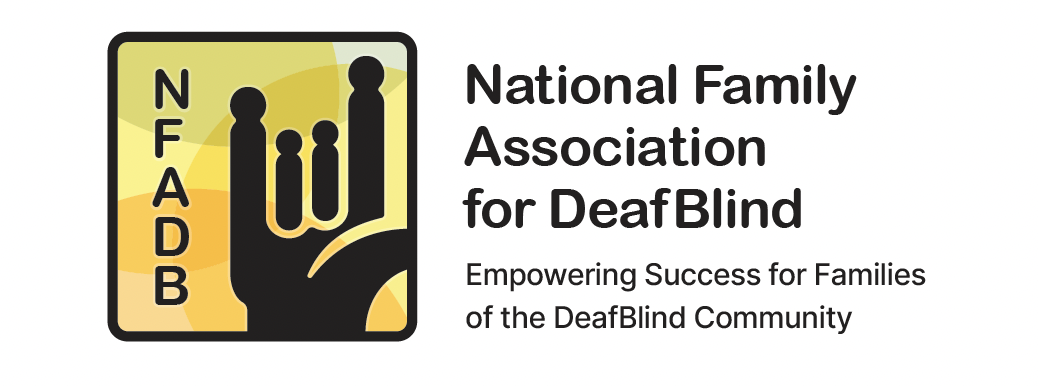- Welcome
- What We Do
- Advocacy
- Advocating for DeafBlind Adults
ADVOCATING FOR deafblind adultsGet involved in advocating for Legislation! Join the growing list of supporters on the bottom of this page! Send an email to PIE@nfadb.org that includes your name, your role (friend or family), and the state that you reside.Family leaders representing eleven (11) family organizations from across the United States developed a national advocacy agenda. Many of those same family leaders are continuing their advocacy efforts through the Family Advocacy Coalition Educating (FACE) for DeafBlind. We feel that this agenda expresses a common need for our DeafBlind adults, regardless of etiology. Require States to develop a State Plan for Adults who are DeafBlind. Ensure the timely implementation of appropriate services and supports for adults who are DeafBlind for a successful transition from school to adult life, including but not limited to post-secondary education, the workforce, or other settings. The goal is a purposeful life of their choice. The plan may include:
Below are three types of qualified personnel which are vital to many individuals who are DeafBlind: Interveners, Interpreters, and Support Service Providers or Co-Navigators. IntervenerIntervention for people who are DeafBlind can connect them to the world around them. It provides access to clear and consistent visual and auditory information, support for the development and use of receptive and expressive communication, and support for social and emotional well-being. This connection to the world can be made through a person called an intervener. An Intervener is defined as a person who works consistently one-to-one with an individual who is DeafBlind and who has training and specialized skills in deafblindness. (Adapted from Interveners.org) Related Resources
Interpreter for the DeafBlindA qualified DeafBlind interpreter is adept in providing visual environmental information in addition to spoken or signed content. A qualified interpreter knows how to modify the signing space, the distance between the consumer and interpreter, adjust pacing, and is competent delivering the content in a manner which is meaningful and coherent for the individual who is DeafBlind. The interpreter also knows the importance of appropriate clothing and other essential factors in accommodating people who have various types of restricted vision. The DeafBlind interpreter also is skilled in working with people who use tactile signing and/or tracking. Tactile signing is a hand-over-hand method for people who receive signed information through touch. Tracking is used by DeafBlind people who have some vision but rely on understanding signed information by touching the interpreter’s wrist or forearm to visually follow their hands. An interpreter’s role when working with people who are DeafBlind is expanded and often includes guiding when walking from place to place, relaying visual/environmental information, note-taking, sight translation of printed materials or assisting with seating arrangements. Adapted from the National Task Force on DeafBlind Interpreting Related Resources
Support Service Provider aka Co-navigatorA support service provider aka Co-Navigator can be any person, volunteer or professional, trained to act as a link between persons who are DeafBlind and their environment. They typically work with a single individual, and act as a guide and communication facilitator. The role of a support service provider (SSP) or Co-Navigator is to provide visual and environmental information, communication access, and guiding within the physical environment, generally in community-based or informal settings. This could mean airports, train stations, restaurants, shopping, recreation and leisure sites, during health and fitness pursuits, and the wide variety of errands and community activities in which we engage in our lives. This support can also take place at home with activities such as reading mail, social gatherings, and any other activities needed by an individual in a private setting. Related Resources |

